IBEC
International experts in Bioengineering meet in Barcelona on the occasion of the 12th IBEC Symposium
 On Wednesday July 17th, the 12th IBEC Annual Symposium was held at the Hotel Catalonia Plaza in Barcelona. With the participation of more than 300 assistants and the exhibition of more than 102 scientific posters, this year, the event focused on Bioengineering for active aging – one of the three main research areas of IBEC- and had the participation of three MIT speakers (Massachusets Institute of Technology), among others.
On Wednesday July 17th, the 12th IBEC Annual Symposium was held at the Hotel Catalonia Plaza in Barcelona. With the participation of more than 300 assistants and the exhibition of more than 102 scientific posters, this year, the event focused on Bioengineering for active aging – one of the three main research areas of IBEC- and had the participation of three MIT speakers (Massachusets Institute of Technology), among others.
“Active aging” or “healthy life expectancy” is an indicator defined by WHO as the equivalent in years of life that individuals are expected to live in good health, and that is approximately a world average of 10 years Less than life expectancy. In recent years, researchers from around the world have put their attention on this indicator, because life expectancy is increasing and also the possibility of suffering diseases associated with aging, which puts the current health system at risk that will have to strengthen its effectiveness in the areas of health promotion and prevention.
A mechanism has been discovered that could improve spinal cord injuries
A study led by researchers from IBEC and Imperial College London has identified a mechanism that regulates the regenerative failure in lesions of the central nervous system. For the first time, experts have also proven how the genetic or pharmacological inhibition of the new therapeutic target could overcome regeneration failure following spinal cord injury
Will I recover from this injury? Answering this question that many patients ask themselves after a fall or any other type of accident or disease is still a major challenge. And the fact is that the molecular mechanisms that discriminate between regeneration success or failure remain a mystery to science. Although lesions of the peripheral nervous system may be partially reversible, lesions of the central nervous system cannot regenerate themselves in the same way. This lack of regenerative capacity is mainly responsible for the functional deficits that appear after a spinal cord injury, for example.
PhD Thesis defence: Javier Burgués
“Signal Processing and Machine Learning for Gas Sensors: Gas Source Localization with a Nano-Drone”. Javier Burgués, Signal and information processing for sensing systems group Chemical source localization (CSL) by autonomous robots … Read more
PhD Thesis defence: Javier Burgués
“Signal Processing and Machine Learning for Gas Sensors: Gas Source Localization with a Nano-Drone”. Javier Burgués, Signal and information processing for sensing systems group Chemical source localization (CSL) by autonomous robots … Read more
José Antonio del Río presents the results about his research at the 20th Symposium of “La Marató de TV3”
José Antonio del Río, group leader of the Molecular and cellular neurobiotechnology group at IBEC, presented at the 20th Symposium of “La Marató de TV3”, the results of his research on neurodegenerative diseases boosted by the funds of “La Marató” in 2013.
During the event, which took place this weed at the “Institut d’Estudis Catalans”, it has been made public the results of the 79 research teams that have carried out the 44 financed projects by the 2013 edition of this program. A set of achievements targeted to design new tools of prevention and diagnostic, as well as new therapeutic approaches to improve the quality and life expectancy of the patients that suffer a neurodegenerative disease. .
The hippocampus orchestrates the cerebral process that allows us to recall memories
For the first time in humans, researchers from IBEC have simultaneously recorded the brain activity of the two key areas linked to memory: the hippocampus and the neocortex.
This study was made possible thanks to the voluntary participation of epilepsy patients who, due to their disease, have intracranial electrode implants. Making use of virtual reality, the participants performed spatial memory tasks. The taste of your favourite snack after school, your first kiss, that time you partied until dawn… Memories are a way of travelling into the past. Despite how easy it can be to remember a situation, the cerebral process taking place is complex and continues to be, for the most part, a mystery.
Researchers from the IBEC develop a Virtual Reality system to treat speech disorders
Researchers from the IBEC have developed a virtual reality-based system for rehabilitating patients with Broca’s aphasia. RGSa has been proven to improve communicative frequency and effectiveness in daily life, as well as sustaining improvements in testing after an 8-week period.
Rehabilitation to recover speech after brain damage is efficient, provided that it is carried out intensively, and can be included in relevant behavioural tasks. However, limited resources in healthcare systems cannot always provide said treatment in sufficient doses. Achieving a cost-effective, evidence-based rehabilitation method is one of the objectives targeted by the SPECS research group.
The second edition of IBEC’s Faster Future programme will be dedicated to the fight against Parkinson
The programme IBEC Faster Future, an initiative that aims to help accelerate research projects that are close to tackling major challenges in health, will enable the development of a new antibody that will be the base of a therapeutic product for the treatment of Parkinson’s disease.
The Faster Future program campaign “Let’s tackle Parkinson”, which is launched today and will remain open to donations until the 30th of April, has the aim to raise 50,000 € needed to accelerate this research, seeking to obtain favourable results within a year and a half.
A new technique allows researchers to focus the action of drugs via infrared light
 A scientific team led by IBEC and UAB manages to efficiently activate molecules located inside cell tissues using two-photon excitation of with infrared light lasers. The results of the study has been published in Nature Communications.
A scientific team led by IBEC and UAB manages to efficiently activate molecules located inside cell tissues using two-photon excitation of with infrared light lasers. The results of the study has been published in Nature Communications.
Having absolute control of the activity of a molecule in an organism. Deciding when, where and how a drug is activated. These are some of the goals expected to be reached with the so-called photoswitchable molecules, compounds that, in the presence of certain light waves, change their properties. Today, thanks to the results of a study led by the Institute for Bioengineering of Catalonia (IBEC) together with the Universitat Autònoma de Barcelona (UAB), the scientific community is one step closer to achieving this objective.

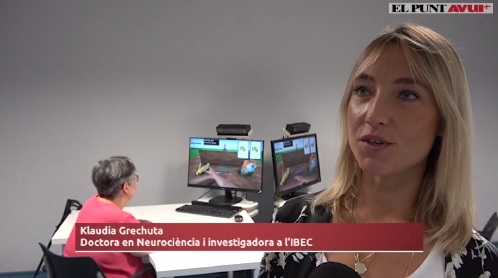
 The SPECS group, together with the physical medicine and rehabilitation department of the hospital Sant Joan de Barcelona, explain us in the news of Punt Avui television, their study in virtual reality for patients who have suffered a stroke. The study began in 2014 and is a reinforcement of the basic rehabilitation treatment. In this case, a study has been done with 18 patients and a clear improvement has been observed after two months thanks to this system.
The SPECS group, together with the physical medicine and rehabilitation department of the hospital Sant Joan de Barcelona, explain us in the news of Punt Avui television, their study in virtual reality for patients who have suffered a stroke. The study began in 2014 and is a reinforcement of the basic rehabilitation treatment. In this case, a study has been done with 18 patients and a clear improvement has been observed after two months thanks to this system.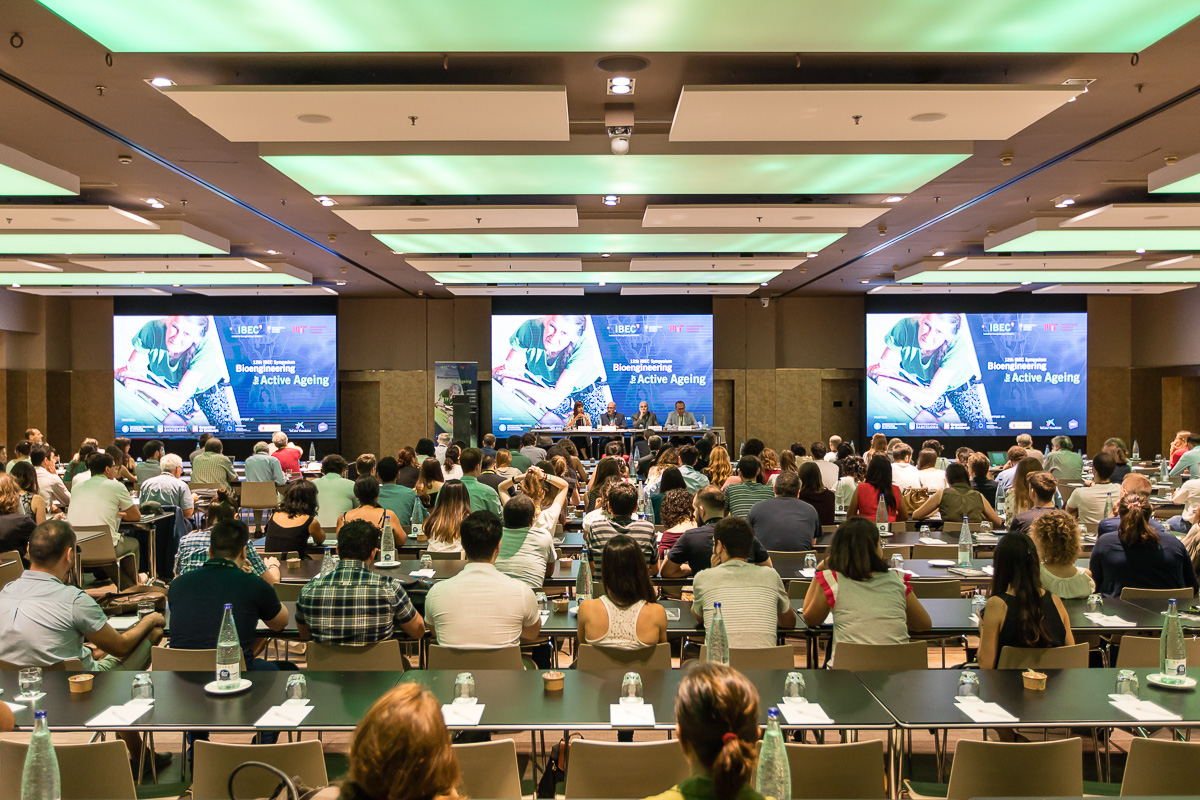
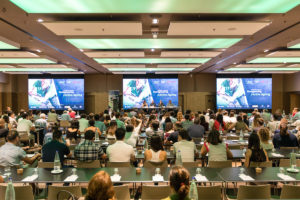 On Wednesday July 17th, the 12th IBEC Annual Symposium was held at the Hotel Catalonia Plaza in Barcelona. With the participation of more than 300 assistants and the exhibition of more than 102 scientific posters, this year, the event focused on Bioengineering for active aging – one of the three main research areas of IBEC- and had the participation of three MIT speakers (Massachusets Institute of Technology), among others.
On Wednesday July 17th, the 12th IBEC Annual Symposium was held at the Hotel Catalonia Plaza in Barcelona. With the participation of more than 300 assistants and the exhibition of more than 102 scientific posters, this year, the event focused on Bioengineering for active aging – one of the three main research areas of IBEC- and had the participation of three MIT speakers (Massachusets Institute of Technology), among others.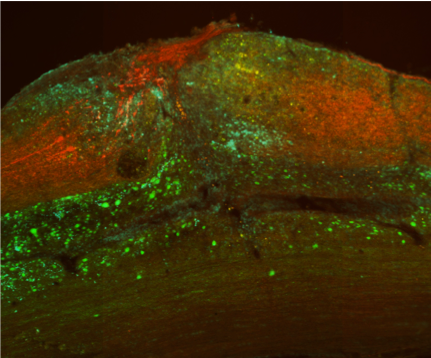
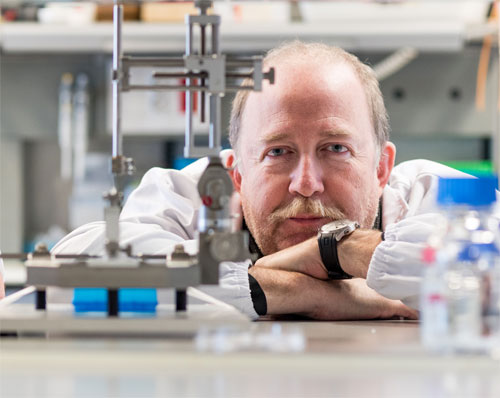
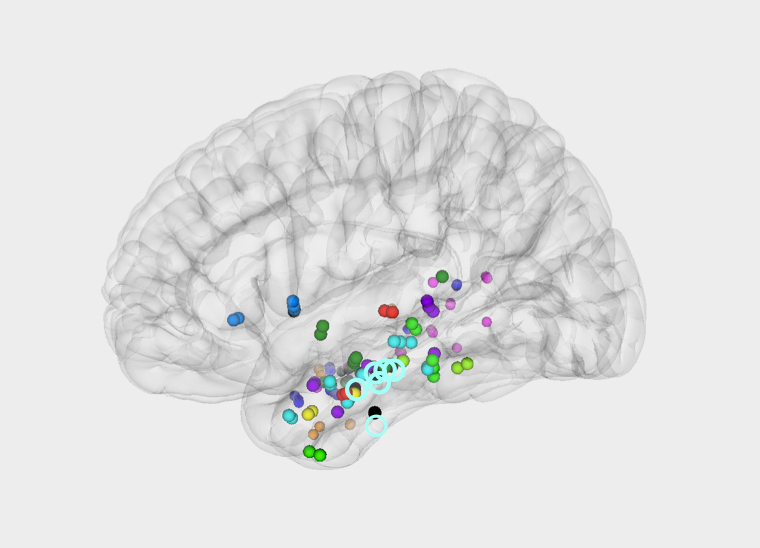
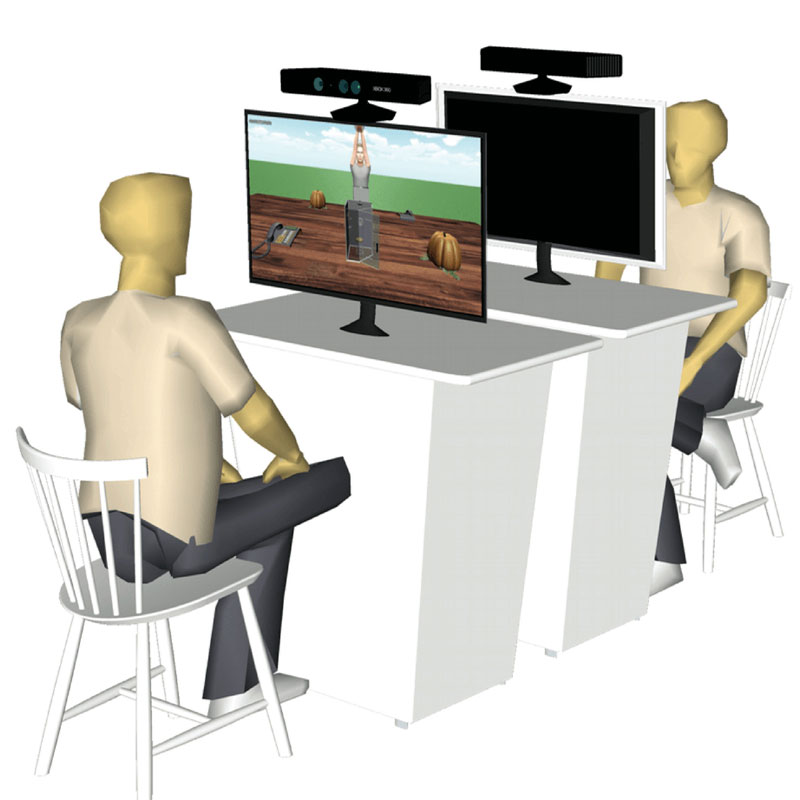

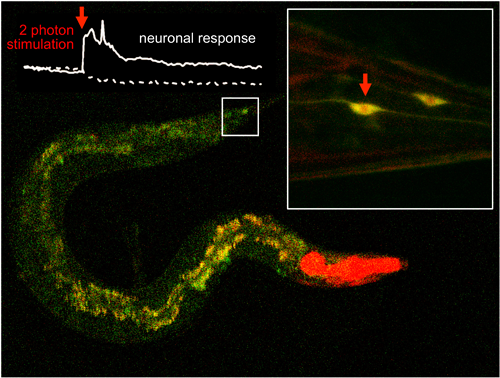
 A scientific team led by IBEC and UAB manages to efficiently activate molecules located inside cell tissues using two-photon excitation of with infrared light lasers. The results of the study has been published in Nature Communications.
A scientific team led by IBEC and UAB manages to efficiently activate molecules located inside cell tissues using two-photon excitation of with infrared light lasers. The results of the study has been published in Nature Communications.